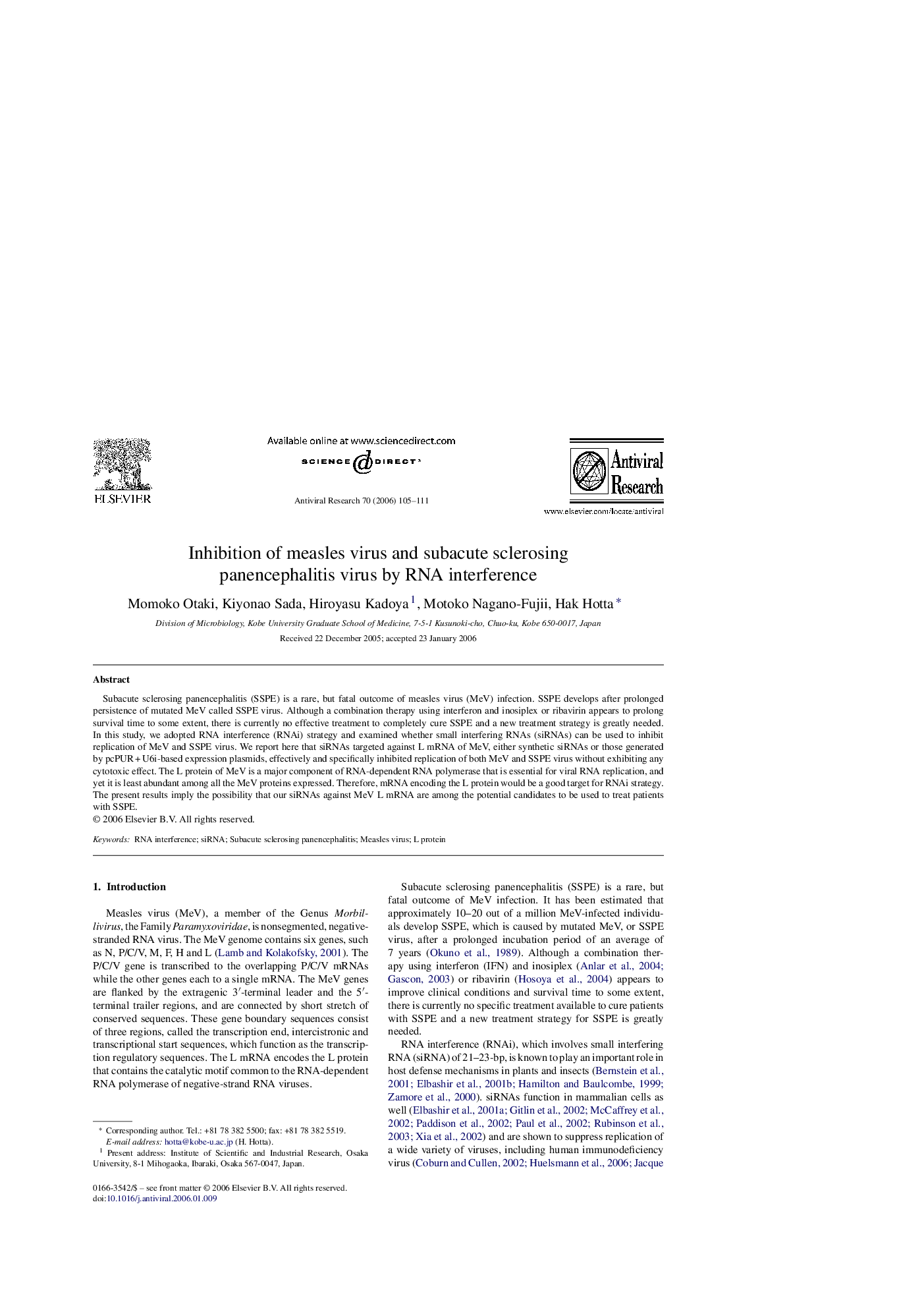| Article ID | Journal | Published Year | Pages | File Type |
|---|---|---|---|---|
| 2511655 | Antiviral Research | 2006 | 7 Pages |
Subacute sclerosing panencephalitis (SSPE) is a rare, but fatal outcome of measles virus (MeV) infection. SSPE develops after prolonged persistence of mutated MeV called SSPE virus. Although a combination therapy using interferon and inosiplex or ribavirin appears to prolong survival time to some extent, there is currently no effective treatment to completely cure SSPE and a new treatment strategy is greatly needed. In this study, we adopted RNA interference (RNAi) strategy and examined whether small interfering RNAs (siRNAs) can be used to inhibit replication of MeV and SSPE virus. We report here that siRNAs targeted against L mRNA of MeV, either synthetic siRNAs or those generated by pcPUR + U6i-based expression plasmids, effectively and specifically inhibited replication of both MeV and SSPE virus without exhibiting any cytotoxic effect. The L protein of MeV is a major component of RNA-dependent RNA polymerase that is essential for viral RNA replication, and yet it is least abundant among all the MeV proteins expressed. Therefore, mRNA encoding the L protein would be a good target for RNAi strategy. The present results imply the possibility that our siRNAs against MeV L mRNA are among the potential candidates to be used to treat patients with SSPE.
